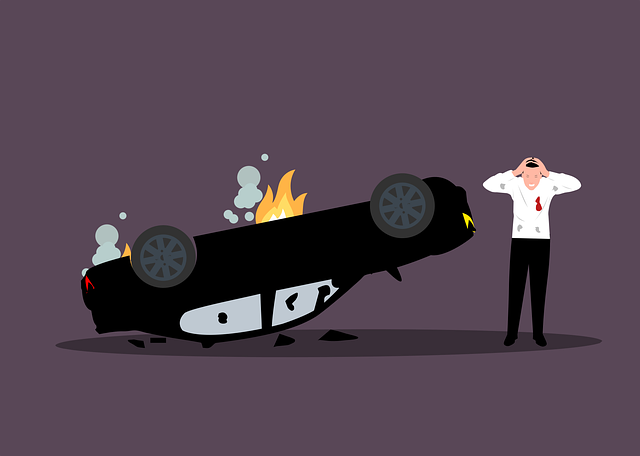Personal Injury Protection (PIP) insurance, often referred to as no-fault insurance, is a type of auto coverage designed to provide financial support for medical expenses, lost wages, and other costs resulting from car accidents, regardless of who is at fault. While not everyone is legally required to carry PIP insurance, it is a valuable addition to your auto policy in many scenarios. Let’s explore who can benefit most from this type of insurance and why it might be a good fit for you.
What Is Personal Injury Protection Insurance?
PIP insurance is an auto policy add-on that provides broad coverage for medical and personal expenses after an accident. Unlike liability coverage, which only pays for damages to others, PIP focuses on the policyholder and their passengers.
To understand how PIP insurance works and what it covers, you can read more here.
Who Is Legally Required to Have PIP Insurance?
PIP insurance is mandatory in several states, commonly referred to as no-fault states. These include:
- Florida
- New York
- Michigan
- Pennsylvania
- Massachusetts
In these states, PIP ensures that medical expenses and other related costs are covered without needing to determine fault. Drivers in these areas must carry a minimum amount of PIP coverage to legally drive.
Who Benefits Most from PIP Insurance?
Even in states where it is not mandatory, there are specific groups of people who should strongly consider adding PIP coverage to their auto insurance policy.
Drivers Without Adequate Health Insurance
If you don’t have comprehensive health insurance or your plan has high deductibles and limited coverage, PIP can act as a safety net. It ensures that you and your passengers have access to medical care after an accident without worrying about out-of-pocket costs.
Families with Dependents
Families with young children or elderly dependents can benefit greatly from PIP insurance. In the event of an accident, PIP provides financial support not just for medical expenses but also for essential services like childcare or housekeeping if the injured party cannot perform these tasks.
Rideshare Drivers
Rideshare drivers for companies like Uber or Lyft often operate in a gray area when it comes to insurance. While rideshare companies provide some coverage, it may not be sufficient in all cases. Adding PIP ensures that you and your passengers are financially protected, regardless of who is at fault in an accident.
Drivers in High-Traffic Areas
If you live in a city or area with heavy traffic and higher accident risks, PIP insurance can provide peace of mind. Urban areas often see more accidents, making the financial protection offered by PIP particularly valuable.
How Does PIP Compare to Other Types of Coverage?
While liability insurance covers damages and injuries you cause to others, and collision insurance covers damages to your own car, PIP stands out for its comprehensive focus on personal well-being. It covers:
- Medical bills
- Lost wages
- Funeral expenses
- Essential services like childcare
For more tips on choosing the right insurance provider, read here.
Real-Life Scenarios Where PIP Insurance Is Crucial
Imagine Sarah, a single mother in New York, who is involved in a minor car accident. While the damage to her car is minimal, she sustains an injury that prevents her from working for a week. Thanks to her PIP insurance, Sarah’s medical expenses and lost wages are covered, and she receives compensation for childcare services while she recovers.
Additional Benefits of PIP Insurance
PIP insurance offers several advantages that make it a worthwhile investment for many drivers:
- Quick Access to Funds: PIP provides immediate financial support, allowing you to focus on recovery rather than legal disputes over fault.
- Covers a Wide Range of Expenses: From medical bills to funeral costs, PIP offers comprehensive protection.
- Passenger Coverage: Ensures that anyone in your vehicle is financially protected in case of an accident.
Who Should Consider Higher PIP Limits?
While states with mandatory PIP have minimum coverage requirements, drivers with additional financial responsibilities or those who are risk-averse may want to increase their PIP limits. Higher limits ensure that you’re better prepared for severe accidents or lengthy recoveries.
High-Income Drivers
If your income is above average, a basic PIP policy may not fully compensate you for lost wages. Opting for higher limits ensures you’re adequately covered if an accident prevents you from working for an extended period.
Individuals Without Emergency Savings
If you lack a financial cushion to handle unexpected medical expenses, higher PIP limits can provide peace of mind and prevent financial strain during recovery.
Limitations of PIP Insurance
While PIP is highly beneficial, it does have limitations:
- Caps on Coverage: PIP benefits are limited to the amount specified in your policy. Severe injuries may exceed these limits.
- No Coverage for Vehicle Damage: PIP does not cover repairs to your car. You’ll need collision insurance for that.
- Not Available in All States: If you live in a state that doesn’t offer PIP, you’ll need to explore alternative coverage options.
How to Add PIP Insurance to Your Policy
If you’re considering PIP insurance, follow these steps:
- Evaluate Your Needs: Determine how much coverage you require based on your financial situation and health insurance.
- Compare Providers: Look for insurers that offer competitive rates and flexible PIP options.
- Review State Requirements: Ensure your policy meets the minimum PIP requirements for your state.
- Bundle Coverage: Consider bundling PIP with other policies like collision or comprehensive insurance to save on premiums.
Personal Injury Protection insurance is a valuable addition to any auto policy, providing critical financial support for medical expenses, lost wages, and more. While it’s mandatory in some states, drivers across the country can benefit from the peace of mind and protection it offers. Whether you’re a rideshare driver, a parent, or someone without adequate health insurance, PIP insurance ensures you’re prepared for the unexpected.



